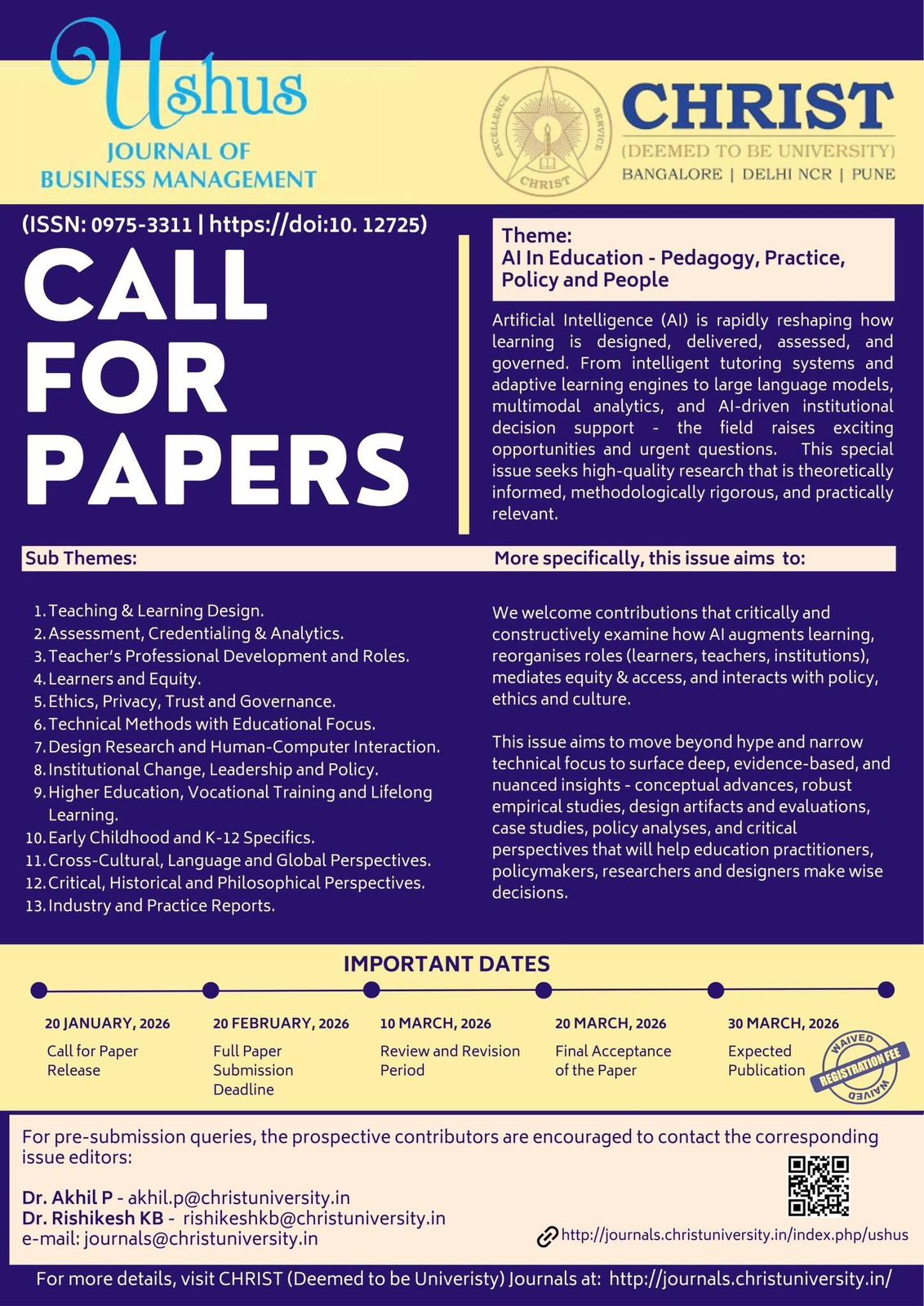Natural Language Processing for Enterprise Applications
DOI:
https://doi.org/10.12725/ujbm/61.2Keywords:
Natural Language Processing, Artificial Intelligence, Machine LearningAbstract
Researchers are concentrating on more efficient communication technologies that can emulate human interactions and comprehend natural languages and human emotions as a result of people's growing reliance on computer-assisted systems. Unstructured data, which is deemed useless, has increased due to the issue of information overload in every industry, including business, healthcare, education, etc. In this context, natural language processing (NLP) is one of the efficient technologies that may be used with more sophisticated technologies, such as machine learning, artificial intelligence, and deep learning, to enhance the interpretation and processing of natural language. In addition to improving human-computer interaction, this can also enable massive amounts of useless and unstructured data to be analyzed and formatted in numerous industrial applications. This will produce significant results that can improve decision-making and hence increase operational effectiveness. This chapter introduces the idea of NLP, its background, and its current state while also going through examples of its use in various industrial fields.
Keywords: Natural Language Processing, Artificial Intelligence, Machine Learning.
References
Perazzoli, S.; de Santana Neto, J.P.; de Menezes, M.J.M.B. Systematic analysis of constellation-based techniques by using Natural Language Processing. Technol. Forecast. Soc. Chang. 2022, 179, 121674.
Io, H.N.; Lee, C.B. Chatbots and conversational agents: A bibliometric analysis. In Proceedings of the 2017 IEEE International Conference on Industrial Engineering and Engineering Management (IEEM), Singapore, 10–13 December 2017; pp. 215–219.
Singhal, N. An empirical investigation of Industry 4.0 preparedness in India. Vision 2021, 25, 300–311.
Zhou, K.; Liu, T.; Zhou, L. Industry 4.0: Towards future industrial opportunities and challenges. In Proceedings of the IEEE 2015 12th International Conference on Fuzzy Systems and Knowledge Discovery (FSKD), Zhangjiajie, China, 15–17 August 2015; pp. 2147–2152.
Bittencourt, V.L.; Alves, A.C.; Leão, C.P. Lean Thinking contributions for Industry 4.0: A systematic literature review. IFACPapersOnLine 2019, 52, 904–909.
Teixeira, J.E.; Tavares-Lehmann, A.T.C. Industry 4.0 in the European union: Policies and national strategies. Technol. Forecast. Soc. Chang. 2022, 180, 121664.
Pilc, M.; Wo ´zniak-J ˛echorek, B.; Wo ´zniak, K.; Pi ˛atek, D. Industry 4.0 in the Messages Published by Employers and Trade Unions in France, Germany, Poland, and the UK. In Digitalization and Firm Performance; Palgrave Macmillan: Cham, Switzerland, 2022; pp. 157–188.
Chen, Q.; Leaman, R.; Allot, A.; Luo, L.; Wei, C.H.; Yan, S.; Lu, Z. Artificial intelligence (AI) in action: Addressing the COVID-19 pandemic with natural language processing (NLP). 2020
Tanniru, M.R.; Agarwal, N.; Sokan, A.; Hariri, S. An agile digital platform to support population health—A case study of a digital platform to support patients with delirium using IoT, NLP, and AI. Int. J. Environ. Res. Public Health 2021, 18, 5686.
Mohapatra, K.; Nayak, M.; Nayak, A.K. Techniques Behind Smart Home Automation System Using NLP and IoT. In Green Technology for Smart City and Society; Springer: Singapore, 2021; pp. 105–115.
Akerkar, R. Artificial Intelligence for Business; Springer: Berlin/Heidelberg, Germany, 2019.
Wamba-Taguimdje, S.L.; Wamba, S.F.; Kamdjoug JR, K.; Wanko, C.E.T. Influence of artificial intelligence (AI) on firm performance: The business value of AI-based transformation projects. Bus. Process Manag. J. 2020, 26, 1893–1924.
Downloads
Published
How to Cite
Issue
Section
License
Copyright (c) 2023 Bharathi A.

This work is licensed under a Creative Commons Attribution-NonCommercial-NoDerivatives 4.0 International License.



